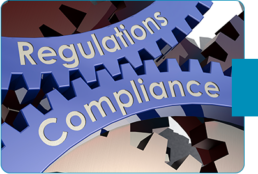Start Your LLC in Georgia with Inc Authority
Our partner, Inc Authority, makes the process of creating an LLC in Georgia seamless. Save time and money by relying on their proven expertise and 32+ years of experience. 250K+ businesses have leveraged their 100% free LLC formation services.
Free Registered Agent Services
100% free services including business name search and free Registered Agent services.
Expert guidance and support throughout the LLC formation process with email and phone support.
A user-friendly online platform to easily form an LLC in Georgia with online document storage.
Things to Know Before Starting an LLC in Georgia
Georgia has a favorable business climate, with low taxes, a relatively low cost of living, affordable transportation, and a robust infrastructure. Before you create an LLC in Georgia, here are some things to keep in mind:
- You need to pay a fee of $100 when you file the Articles of Organization online to create an LLC in Georgia with the standard processing time. For in-person and email applications, the filing fee is $110.
- If you want your file to be processed in 2 business days, an additional fee of $100 will apply. Same-day processing of your application will cost an extra $250. For one-hour processing, you need to pay $1000.
- LLCs are required to file an annual report with the Georgia Secretary of State’s office that costs $50. The annual report is used to update the state’s records with the most current information about the LLC.
- If you employ staff, you will need to withhold and pay your employees’ income taxes. LLCs that are eligible will also need to pay unemployment insurance taxes on a quarterly or annual basis at a rate of 2.7%.
LLCs in Georgia are relatively easy and inexpensive to form and maintain, with fewer formalities and regulatory requirements than other business entities. This can save time and money while still providing the benefits of having a formal business entity.
18,000+
Trustpilot Reviews
Inc. 5000
Company
7-Day
USA Based Support
24-Hour
Processing Time
How to Form an LLC in Georgia
Starting an LLC in Georgia can be exciting and overwhelming at the same time. There are so many decisions to make, from choosing a name for your company to determining the best business structure for your organization.
Here are the 14 steps to follow to launch your LLC in Georgia:
Create a Business Plan
While not a legal mandate, creating a comprehensive business plan is the most crucial step involved in forming an LLC in Georgia. A well-written plan helps you identify your goals, potential challenges, and strategies to overcome them.
Fortunately, Inc Authority offers professional assistance to help you write a successful business plan for your LLC in Georgia. Its team of experienced experts does the research and prepares the complete business and financial plan.


Start with a Name Search for Your LLC in Georgia
Starting with a name search is a crucial first step when forming an LLC in Georgia. The name of your LLC in Georgia should not be more than 80 characters and contain the words limited company, limited liability company, LLC, or LC.
If you want to use words like surety, insurance, fidelity, etc., you must obtain approval from the respective authorities. Inc Authority’s free business name search tool makes it easy to check if the business name is available in Georgia.
Reserve Your Chosen Name
If you are not ready to register your LLC immediately, you can reserve the name of your LLC in Georgia with the Secretary of State. The name will be reserved for 30 days in Georgia, unlike other states that have a 120-day reservation period.
You need to pay a filing fee of $25 while filing online and a fee of $35 for filing via email. The processing time is 7 days for online applications and 15 days for email applications. You can also expedite the process by paying an additional fee.


Appoint a Local Registered Agent
A Registered Agent acts as your LLC’s ‘mailbox’ and receives the business and legal documents on behalf of your LLC in Georgia. According to Georgia’s law, LLCs have to appoint a Registered Agent with a physical mailing address in the state.
While Registered Agent services cost $249 or more with other business formation services, you can get the Registered Agent services for free for the first year with Inc Authority’s free LLC formation package and the paid packages.
Obtain a Valid Email Address
A valid email address is typically required when forming an LLC in Georgia. The Secretary of State’s office will communicate important updates, notices, and reminders, such as the status of LLC filing, or other follow-up actions.
Inc Authority offers 5 business email addresses in addition to a web domain in both its Startup and Fast Track packages. This allows LLC owners a convenient way to stay up-to-date and informed about the status of their LLCs in Georgia.


Prepare and File Articles of Organization
Your LLC in Georgia is not considered a legal entity until you file the Articles of Organization. There are three ways of filing this document with the Georgia Secretary of State, including e-filing, paper filing online, and by mail.
The filing fee is $100 for both paper and electronic filing methods. When sending the documents by mail, you need to pay a fee of $110. Inc Authority will prepare and file all these documents at no extra cost apart from the state filing fee.
File the Transmittal Form
To form an LLC in Georgia, there is an additional form you need to submit with your Articles of Organization, known as the Transmittal form with the Secretary of State. This is a form that all business entities in Georgia are required to file.
The fields to fill in this form include the name, the primary email address of your LLC in Georgia, the Registered Agent’s email address, and your signature. Thankfully, Inc Authority offers custom state filing of papers to help you stay compliant.


File for Doing Business As
When forming an LLC in Georgia, you may need to file a Doing Business As (DBA) if you plan to conduct business under an assumed name that is different from your LLC’s legal name. Many businesses opt for a DBA for branding purposes.
To do this, you need to fill out and submit the Trade Name Application and other forms specific to the county where your business is located. You should also publish the DBA once a week in the local newspaper for two consecutive weeks.
Apply for an EIN
If you intend to hire employees or are registering for sales tax, you will need to obtain an EIN (federal Employer Identification Number). It is also required to open a business bank account and to apply for business loans and lines of credit.
You will need to visit the IRS (Internal Revenue Service) website to apply for the EIN online. Inc Authority offers EIN application services to make the process hassle-free and quick. This service is offered as part of the free LLC formation package.


Get the Required Licenses and Permits
Your LLC in Georgia may need several permits and licenses from local agencies, the state, and from Federal agencies, depending on the business activities. Some businesses, such as restaurants serving alcohol, also need regulatory permits.
Given the long list of permits and licenses specific to different types of businesses, it can be challenging to learn which licenses you need. Fortunately, you can get accurate advice on licenses your LLC in Georgia requires from Inc Authority.
Create an LLC Operating Agreement
A Georgia LLC operating agreement helps establish clear guidelines and expectations for how your business will be managed and strategic decisions will be made, and what will be the roles and responsibilities of LLC members.
Taking the time to create an operating agreement can be one of the most important steps toward starting an LLC in Georgia. LLC experts at Inc Authority will prepare this document accurately as per your company’s requirements.


Open a Business Bank Account
While an LLC in Georgia is not required by law to open a business bank account, it is generally recommended to have a separate bank account. It also makes it easier to track your business expenses while simplifying tax preparation.
A business bank account also helps establish the LLC as a separate legal entity and enhances its professional image. Inc Authority’s 100% free LLC formation package gives you access to a free Bank of America checking account.
Create a Business Website
While having a business website is not a mandatory requirement to form your LLC in Georgia, creating one can be advantageous for your business. A compelling website can help you capture more leads and convert them into customers.
In addition to email addresses and a domain, Inc Authority also connects you with dedicated website designers and marketing specialists. They work with you to create a custom website that ranks high in search engines to attract visitors.


Stay Compliant with State Regulations
Georgia LLCs are required to renew their registration by filing an annual registration with the Georgia Secretary of State office. This is to confirm and update the company’s information, such as the Registered Agent or company address.
Failing to comply with these requirements can result in your LLC getting revoked or administratively dissolved. Compliance notifications from Inc Authority help your LLC in Georgia meet the annual registration and other state filing requirements.
Discover the Advantages of Outsourcing LLC Formation
Right from creating a business plan to preparing and submitting various documents, there are many steps and deadlines involved in creating an LLC in Georgia. Outsourcing to a reputed professional gives you these advantages:

Save Time and Money
Outsourcing is more cost-effective as it allows business owners to avoid expensive mistakes and costly delays in the formation process.
Choosing a company that offers free LLC formation packages helps you maximize savings and focus on revenue-generating aspects of your business.

Leverage Expertise
Business formation professionals have a clear understanding of the legal requirements involved and can guide you through the process.
In addition to the accurate preparation of documents, these professionals will help you stay compliant with annual notifications, document templates, and more.

Additional Services
Outsourcing provides you with access to additional services, which are essential for your business’s long-term success.
By working with the top professionals who offer these services, business owners can ensure that they have all the support and they need to manage their LLC very effectively.
Benefits of Starting an LLC in Georgia
Starting an LLC in Georgia comes with multiple benefits, including liability protection, tax flexibility, and ease of formation. With 1,088,025 LLCs currently active in Georgia, it is clear that an LLC is one of the most popular business structures.
We have listed the top benefits of starting an LLC in Georgia below.

Liability Shielding
The owners of an LLC in Georgia are not personally liable for the debts or liabilities of the company as the business has its own legal identity that is separate from its owners. Instead, the LLC’s assets are used to pay off any debts or liabilities.
This means that if the LLC faces legal action or financial problems, such as lawsuits, debts, or other financial obligations, the owners’ personal assets (such as their homes, cars, or personal bank accounts) are generally protected.

Flexible Management Structure
Unlike corporations, LLCs in Georgia are not required by law to have a board of directors or follow a strict management hierarchy. This provides Georgia LLCs more flexibility in how their company is managed on a daily basis.
An LLC can be managed by its owners (“member-managed”) or by a manager or a group of managers (“manager-managed”). The LLC can also choose to have its own management agreement that outlines roles and responsibilities.

Tax Flexibility
Starting an LLC in Georgia will also help you save on taxes. While LLCs are classified as pass-through entities, they do not pay federal income tax. The individual members of LLCs pay income tax on their share of the business profits.
However, Limited Liability Companies can choose to be taxed as a Corporation or S-Corp if it makes sense for their business needs. If they meet certain eligibility requirements, LLCs can convert to an S-Corporation or a C-Corporation.

Ease of Formation
Starting an LLC in Georgia is a relatively simple and straightforward process, with minimal paperwork and filing requirements. After choosing a business name, LLCs have to file Articles of Organization with the state and obtain an EIN.
LLCs may have lower ongoing fees and reporting requirements. In contrast, forming a Corporation typically involves filing Articles of Incorporation, adopting corporate bylaws, holding an initial board meeting, and taking minutes.

Credibility and Professionalism
Establishing an LLC in Georgia can help enhance the company’s professional image and credibility with customers, vendors, and partners. By shielding the personal assets of owners, an LLC can provide a sense of security to investors.
In addition, as a separate legal entity, it can easily enter into contracts, obtain financing, and protect its intellectual property. The lowered liabilities can increase confidence in the business’s ability to deliver quality goods or services.

Perpetual Existence
LLCs in Georgia can exist in perpetuity, meaning that they can continue to operate even if one or more of the owners leaves or dies. This can provide greater stability, continuity, and a sense of security for employees and investors.
In most states including Georgia, LLCs are required to include a statement in their Articles of Organization indicating whether the company will have perpetual existence. Inc Authority can help you prepare this document.

Cost-Effectiveness
Generally, forming an LLC in Georgia is cheaper than forming a Corporation. LLCs are also less expensive to maintain than Corporations, due to lower filing fees and fewer ongoing fees and compliance requirements.
While the filing fee for Articles of Organization for an LLC in Georgia is currently $100, a Corporation in Georgia has to pay $100 plus an additional annual registration fee of $50 within 90 days of their incorporation.

Business-Friendly Environment
Georgia has a business-friendly environment that encourages entrepreneurship and innovation. In addition to a low tax burden, Georgia has a favorable regulatory climate and a well-educated workforce that can help businesses thrive.
The capital city of Atlanta is a thriving business hub that attracts many investors, professionals, and businesses. While housing is affordable, the cost of living in Georgia is also 11.2% lower compared to the national average.
Why is Inc Authority the Best Choice for Forming an LLC in Georgia?
Inc Authority offers a free package in addition to affordable paid packages with a range of services that helps businesses save money. A user-friendly online platform makes it easy for businesses to quickly and easily form an LLC in Georgia.

Free Services
Inc Authority’s business formation packages are truly 100% free.
The package includes Registered Agent and filing services, tax consultation & more.

Live Support
Live customer support is available 24/7 for US businesses.
Inc Care is a dedicated support service that has received a 4.9/5 rating on Trustpilot.

Business Expertise
Inc Authority offers a wide range of tailored services for LLCs in Georgia.
Get expert help with business planning, funding, marketing, and website design.
Form Your LLC in Georgia with Inc Authority's Comprehensive Packages
Inc Authority offers comprehensive LLC formation packages that are designed to save you time, money, and stress. The free and paid plans include everything you need to get your business up and running quickly.
Take a look at Inc Authority’s free and paid plans.
Free
Inc Authority’s free package is a popular choice as it comes with a range of value adds, such as free Registered Agent services, tax consultation, and more.
- Business Name Search: The free business name check tool is easy to use. Once you key in the chosen name for your LLC in Georgia, the tool conducts a preliminary search in the state’s database to confirm the availability.
- Filing the Articles of Organization: Once the name search is complete, Inc Authority will prepare the Articles of Organization. Their team will review the documents and will then file them with the Georgia Secretary of State.
- Tax Consultation: The 1-hour free tax planning consultation is especially helpful for new business owners who may not be familiar with tax laws and regulations in Georgia. A tax expert is available to answer all your queries.
- Registered Agent: Inc Authority offers free Registered Agent service for the first year. Choosing Inc Authority is a great way to save on the costs of appointing a reliable Registered Agent service provider in Georgia.
- Digital Storage: The free LLC package of Inc Authority includes digital document storage and delivery. Owners can access their documents, such as operating agreements, via a secure online portal from anywhere.
- S-Corp Formation: Inc Authority offers the service of preparing and filing the documents for S-Corp formation for free in its LLC package. This includes preparing and filing Form 2553 with the IRS in the stipulated time.
- Funding and Credit Assistance: Inc Authority connects you with business credit and funding experts who will review your financing needs in detail. You can get insights into the different types of funding available to you.
- INC Care Support: Dedicated customer support is part of the free plan that is rated highly on review sites. US-based businesses get 24/7 live support, in addition to email and phone support for quick problem resolution.
Price: Free


Starter Business Bundle
The Starter Bundle is one of the premium service bundles that Inc Authority offers. The plan includes everything in the free LLC package in addition to these services.
- Initial Meeting Minutes: Inc Authority prepares initial meeting minutes based on the specific requirements of your company’s operating agreement. The resolutions and decisions taken are also accurately recorded.
- Custom Filing of Articles: The specific filing requirements and documents can vary by state. Inc Authority ensures the relevant documents, such as the Transmittal Information Form, are filed for your LLC in Georgia.
- Annual Compliance Notifications: Every LLC in Georgia needs to file a registration fee annually in addition to reporting on wages. Inc Authority’s compliance notifications ensure you don’t miss these deadlines.
- Website Domain: Apart from business formation services, Inc Authority offers comprehensive business services that are valuable for startups, such as web domain and hosting services provided by third-party providers.
- 5 Business Emails: Individual users and small business teams can leverage professional email accounts that come with calendar syncing, unified inbox, secure cloud storage, shared contacts, and spam protection.
- Deluxe Record Book: Inc Authority offers a Deluxe Record Book along with a custom embossed seal. This helps you maintain and organize key documents, such as the LLC operating agreement and contracts.
- Operating Agreement: You can rely on Inc Authority’s LLC formation experts to create custom your LLC operating agreement that explain the roles and responsibilities of each member.
- Corporate Forms Package: Inc Authority provides a corporate forms package customized for your LLC’s needs. You will get customizable templates and help drafting different types of documents.
- EIN/Tax ID Number: Inc Authority can help you obtain an Employer Identification Number (EIN) or Tax ID Number for your business, which is required for tax purposes and other business purposes.
Price: Custom
Fasttrack Business Bundle
While the Fasttrack bundle includes all the features of the Starter package, it offers additional services such as fast filing and personalized business advice.
- Private Banking Specialist: Inc Authority connects you with a banking expert who analyzes your LLC’s financial requirements to make custom recommendations that are aligned with your investment needs.
- Expedited Filing: Inc Authority submits your papers within 24 hours of receiving your order to Georgia Secretary of State. The rush hour service they offer helps you form an LLC in Georgia quickly and easily.
- Personalized Business Advice: Inc Authority’s business advisors understand your specific needs and goals before offering insights and recommendations, removing the stress from business formation.
- INC Success Advisor Package: A business expert offers insights on all aspects of setting up and running your business including funding, credit, accounting, and more. This service is available for the first year.
These services can also be purchased individually as add ons if you opt for the Starter Bundle.
Price: Custom


Add-On Services
- Business Plan: Inc Authority offers tailored business advice apart from preparation of business plan that includes research, market analysis, and more, designed to maximize the chances of raising capital.
- Federal trademark: In addition to 24-hour e-filing of trademark application, the service includes an expanded search of all databases. It also includes trademark monitoring and guidance from a trademark specialist.
- Website and Marketing: You can benefit from the comprehensive marketing services offered by Inc Authority, such as website design, search engine optimized content, logo design, business cards, and location listing.
- Business Credit: A credit coach works with you to ensure you get an A+ credit rating in 90 days apart from access to working capital, credit lines, and loans. You also get access to an updated list of credit vendors.
- Business Funding: This service is designed to optimize funding approval rates. Your Georgia LLC can get assistance with meeting funding application compliance apart from a personal consultation with underwriters.
- Revocable Living Trust: Inc Authority assists individuals in creating a Revocable Living Trust, last will, instruction letter for transferring assets, and both general and healthcare Power of Attorney for couples.
Price: Custom
FAQ
The cost of forming Limited Liability Companies in Georgia depends on factors, such as the mode of filing and whether you want expedited processing.
Here is a quick breakup of the cost of forming an LLC in Georgia:
- Filing fee: $100 (expedited fee of $250 if you want to form the LLC in 2 days)
- Registered Agent: $249
- Additional costs (operating agreement, EIN, compliance alerts): $100
This translates to a cost of $349 to $500+ for your Georgia LLC. The good news is that you can get all these services at no extra cost with Inc Authority’s free LLC formation package.
To set up an LLC in Georgia, you will need to follow these steps:
- Create a business plan: Create a detailed plan highlighting the mission statement, market analysis, structure, financial projections, etc.
- Start with a business name search: Use Inc Authority’s business name check tool to select a unique business name to represent your brand.
- Reserve the chosen name: To reserve the name for 30 days, you have to pay a $25 filing fee when filing online and $35 if filing via email.
- Appoint a Registered Agent: Appoint a Georgia Registered Agent who will receive legal documents and notices on behalf of your LLC.
- Obtain a valid email address: Inc Authority offers 5 business email addresses and a web domain with both its Startup and Fasttrack packages.
- File Articles of Organization: The next step is to prepare and file the Articles of Organization by paying a fee of $100 to the Secretary of State.
- File the Transmittal Form: This document accompanies the Articles of Organization and includes basic information about your LLC.
- Obtain an EIN: Obtaining an EIN from the IRS is necessary to open a business bank account, file taxes, hire staff, and obtain funding.
- Get the required licenses and permits: Depending on your business activity. you may need to obtain additional licenses and permits.
- Create an operating agreement: This document highlights the roles and responsibilities of members in addition to procedures to be followed.
- Open a business bank account: Open a dedicated bank account for your Georgia LLC to keep business finances separate from personal finances.
- Create a business website: While this is optional, creating a website helps you establish a strong online presence for your LLC in Georgia.
- Stay compliant: This includes filing an annual report, following employment laws and complying with state and federal tax requirements.
While there is no ‘general business license’ at the state level, a Georgia LLC needs to obtain a license from the city that they are operating in. You may also need to obtain specific licenses depending on the nature of your business, such as:
- Food sales license
- Occupational tax certificate
- Sales tax registration
- Building permits
- Alcohol license
- Professional license
Inc Authority offers a step-by-step guide to know what licenses you need for your Georgia LLC with business license reports and annual compliance notifications.
A Georgia Limited Liability Company is taxed differently depending on its classification for federal income tax purposes.
As they are considered “pass-through” entities, the responsibility for filing federal income tax returns lies with the members or owners of the LLC.
By default, a single-member LLC or Sole Proprietorship is treated as a disregarded entity for federal taxes.
This means that the income and expenses of the LLC are reported on the owner’s personal tax return, and the LLC itself does not pay federal income taxes.
Instead, the business owner pays self-employment taxes on the LLC’s net income. The advantage of forming an LLC in Georgia is the ability to separate your business and personal finances and enjoy liability protection.
In addition, LLCs have to pay employer taxes and a registration fee of $50 each year. However, there is no net worth tax to be paid.
The amount of time it takes to get an LLC in Georgia can vary depending on how quickly you submit the proper paperwork and how quickly the state processes your application.
The processing time also varies based on the registration method you choose. If you register in person and want to get your application processed in 2 days, you will need to pay a fee of $100.
Same-day processing will cost $250 while you need to pay $1000 to get your file processed in one hour.
If you register through email, the processing time is 15 days. For faster processing, you need to pay an additional fee.
The LLC formation time for online registration is about 7 working days.
With Inc Authority, you can opt for expedited filing to ensure you form your LLC in a quick time.
Form an LLC in Georgia With Inc Authority
With a proven track record, our partner, Inc Authority, has the experience and expertise to make the LLC formation process seamless.
Partner with Inc Authority to enjoy significant cost and time savings.
$0 + State Filing Fees